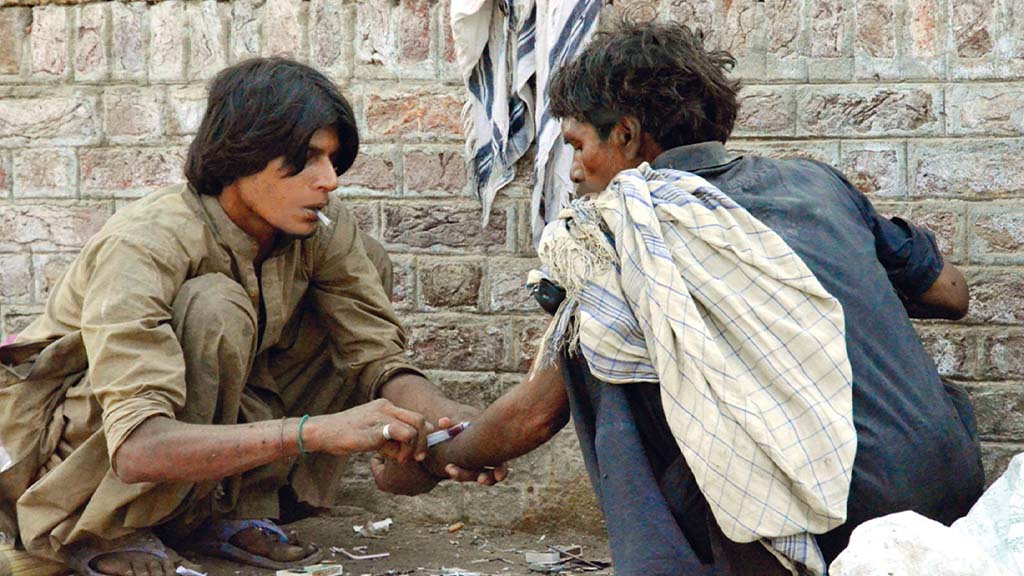- Web Desk
- 1 Hour ago

Unemployment drives increase in drug use among Pakistani nomadic youths
-

- Web Desk
- Jul 06, 2024

LAHORE: Non-governmental organisations (NGOs) working for the welfare of nomadic communities have raised concerns over the increasing number of nomadic youths turning to drugs due to a lack of employment opportunities.
According to Express News, they point out that the absence of skill development programmes from the government has forced these youths into begging, collecting trash, and performing street shows.
In Lahore, 32-year-old Saleem resides in a nomadic settlement in the Band Road area. He collects trash daily from nearby localities, separating useful items such as plastic bottles and metal scraps to sell to local junk dealers.
Saleem, who is married with three children, manages to earn between 700 to 800 rupees daily from trash collection. He shared that if he had learned a trade, he might not have to resort to this work. He is illiterate and never had the opportunity to learn a skill. However, he mentioned that unlike him, two of his children attend a school run by an NGO.
Similar to Saleem, 80 per cent of youths living in nomadic settlements engage in begging and trash collecting. A few have skills in making toys, while some entertain by performing tricks with monkeys and snakes to sustain their households.
Nazir Ghazi, head of the NGO Godh, which works for the welfare of nomads, told Express that Godh had initiated a skill development project for nomadic girls in 2007 and 2008. This project was funded by the South Asia Women Development Programme.
Ghazi explained that they taught nomadic girls skills according to their interests, including music. Many girls learned to sing, dance, and play musical instruments such as the harmonium.
He noted that a renowned film studio is located near the nomadic settlement, which often requires extras for song shootings in various films. The trained nomadic girls have been earning good money by working as extras.
However, Ghazi highlighted the lack of a pressure group among the nomads that could unite and voice their needs. They remain closely knit within their families and tribes, often not allowing their children to travel far from home to learn skills.
Iftikhar Mubarak, head of Search for Justice, mentioned to Express that vocational training institutions require educational qualifications for admission, which nomads often lack. He pointed out that Article 25-A of the Constitution obligates the government to provide free and compulsory education to children aged 5 to 15 years.
Mubarak suggested a community-level customised approach to skill development for nomadic children, emphasising that training should be provided in skills that do not require formal education, while ensuring compliance with child labour laws.
As an example, Mubarak referred to the Amina Protection and Learning Centre established by Search for Justice in Shahdara, Lahore. This centre not only educates nomadic children but also provides business models to youths over 18, especially girls, to start their ventures in sewing, embroidery, beauty, and home crafts.
A spokesperson for the Punjab Social Welfare Department stated that the department is working for the welfare of special persons, women, transgender individuals, and the elderly, but currently has no projects for nomads.
Similarly, a spokesperson for the Punjab Vocational Training Institute mentioned that the institute offers various skill development opportunities without any discrimination based on community, gender, or region. Any youth meeting the basic criteria can enrol in their training programmes.
Read next: How quickly can your phone be PTA approved after paying tax in 2024?





